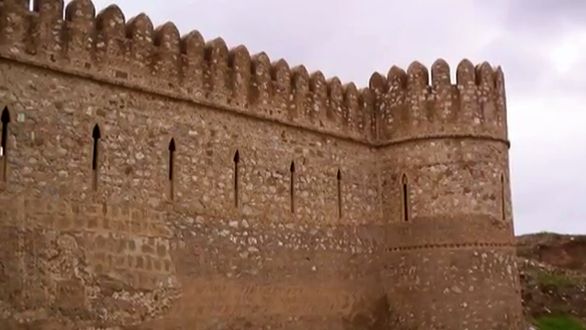SUMMARY
This is AI generated summarization, which may have errors. For context, always refer to the full article.

KIRKUK, Iraq – Every Ramadan (as they have for decades), residents of Kirkuk gathered to play a game called Siniyah, a game that remains one of the few apolitical traditions in the disputed city of northern Iraq.
Providing some brightness to a city at the center of what is seen as an intractable conflict, a multi-ethnic team emerged victorious in the annual city-wide Siniyah tournament this year.
After the iftar meal that breaks the daily fast during the Muslim holy month of Ramadan, men of the city met to partake in hours-long games, where participants must find a die hidden in groups of overturned metal coffee cups.
Siniyah is similar in concept to Moheibes, another game that is traditionally played after sunset during Ramadan across Iraq.
But in Kirkuk, called a “tinderbox” for its diversity and the fact that it is situated at the center of a tract of disputed land claimed by both Iraq’s government and the autonomous Kurdistan region, a game played by and with all of the city’s many communities takes on wider significance.
“The first thing we do after iftar is go to the cafes, because Siniyah is this most beautiful thing that entertains us during the nights of Ramadan,” said Ghani Zain al-Abidine Rustem, a Turkman.
Rustem was playing in central Kirkuk’s Diwan cafe, one of more than 150 sites across the city where men and boys of various ethnic and religious groups gather for games.
“It is a game we have inherited from previous generations, and it represents the identity of Kirkuk,” he said.
Siniyah has been played for decades in Kirkuk, and involves teams of 3 hiding a die underneath 11 upturned cups, all placed on a large metal tray (the name of the game comes from the Arabic word for the tray itself).
Teams attempt to guess which cup is hiding the die and win points based on how few guesses it takes them to successfully find it. The first team to get 101 points is the victor.
Games ran from after iftar until the suhoor meal just before dawn, when Muslims eat before undertaking the Ramadan daylight fast, and the weeks-long tournament culminated in the crowning of a city-wide champion.
Teams were organized on an ad hoc basis: some representing their neighborhoods, others representing communal groups, while a handful were multi-ethnic.
Throughout, Arabic, Kurdish and Turkman music and dance performances were put on, representing the 3 main languages and ethnic groups in the city, that lies 240 km (150 miles) north of Baghdad and is the capital of a province of the same name.
‘Revival of an inheritance’
“What we want is to show our love and brotherhood with Kurds and Turkmen,” said Bassim Muwafaq, the owner of a packed cafe in the south of Kirkuk.
“The game is beautiful and entertaining, and a revival of an inheritance.”
Positive sentiment aside, however, Kirkuk remains a dangerous city, and analysts and officials have long pointed to the unresolved row between the federal government and Kurdish authorities over its status as one of the biggest threats to Iraq’s long-term stability.
Kurdish officials wish to incorporate Kirkuk into their 3-province autonomous region with the support of Kirkuk’s Arab and Turkmen residents. These are plans that Baghdad has vigorously opposed.
Just during Ramadan, the city itself suffered 5 bomb attacks, killing at least 11 people and wounding 30 others, to say nothing of several attacks in surrounding towns in the province.
As a result, security forces stood guard at several of the cafes and gardens where the games and official city-wide tournament took place.
Players, however, insisted that violence was far from their minds while the games were going on.
“Everyone forgets the dangers of terrorism and the security measures and concrete barriers,” said Farhad Azad, a 35-year-old civil engineer.
And the popularity of Siniyah during Ramadan also translates into good business for shopowners, not just of the cafes where the games are taking place, but also in nearby restaurants and businesses, according to Mateen Sabah, whose shop sells sweets in Kirkuk.
“The cafes of Kirkuk have hosted this game for decades,” said Issam Salaheddin, a professor of history at the city’s university. “All the communities in Kirkuk meet for Siniyah, despite the differences between politicians and political parties.”
This year, the results of the city-wide tournament gave some positive news in an otherwise dour political climate: a team composed of an Arab, a Kurd and a Turkman emerged triumphant over 11 other groups organized along ethnic or communal lines.
“All those teams had nationalist dimensions — some of them were Kurd, some of them were Arab, some of them Turkmen,” said Ali Adil Zain al-Abidine, captain of the victorious team.
“It was a very exciting tournament, and thousands of people from Kirkuk were watching,” he added. “We hope that, next year, we will get some more support from the public.” – Marwan Ibrahim, Agence France-Presse
Add a comment
How does this make you feel?
There are no comments yet. Add your comment to start the conversation.